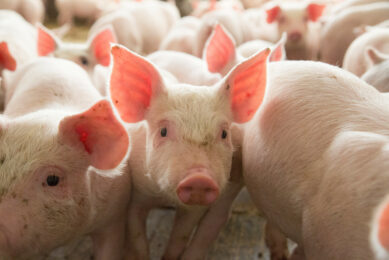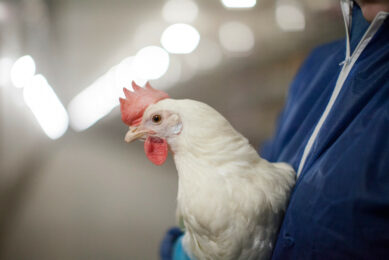Selenium Deficiency is a Widespread Problem
Leading selenium specialists meeting in Prague this week have concluded that humans and animals alike across Europe typically fall short of the optimal dietary intake of the nutrient selenium.
Speaking at Alltech’s annual European Selenium Conference: “Selenium in animal and human health – Nutrition inspired by natureâ€, the experts emphasised the detrimental effect that this deficiency can have on health.“We hear that selenium is important – that is not enough – it is essential†said Professor Gerhard Schrauzer of the University of California, San Diego, USA.
Potential solution
While speakers concurred that selenium supplementation could provide a potential solution, inorganic selenium salts are not the solution due to their low ‘bioavailabilty’ and sustainability in the body.
Research comparing organic selenium supplementation, in the form of Sel-Plex®, (Alltech’s organic selenium produced by Saccharomyces cerevisiae CNCM I-3060) to selenite supplementation in the diets of ruminants, pigs and poultry was presented.
“Compared to selenite, Sel-Plex resulted in an extra 4.5 chicks per hen. In breeders, Sel-Plex resulted in more uniform chick weights and length. Over 36 trials in breeders, replacing selenite with Sel-Plex gave an average of 35 g/bird more and FCR (Feed Conversion Rate) was reduced by 6 points†said Dr. Peter Spring, Swiss College of Agriculture, Switzerland.
Pig diets
Irish consultant, Dr. Wallace Henry, found similar results in pig diets, “Changing from selenite to Sel-Plex in sow diets gives between 0.57 – 0.72 extra weaned pigs per annum – that’s 645 pigs per 1000 sows. Pigs from sows fed Sel-Plex are also heavier at weaning by 0.5 kg.â€
“Cows fed Sel-Plex tend to produce a much greater amount of seleno-protein P. In beef, Sel-Plex increases the GSH-Px in the tissue that enhances oxidative stabilityâ€, according to Dr. Darren Juniper, Reading University, UK.
Related Website
• Alltech
Subscribe here to the free Pig Progress newsletter
Potential solution
While speakers concurred that selenium supplementation could provide a potential solution, inorganic selenium salts are not the solution due to their low ‘bioavailabilty’ and sustainability in the body.
Research comparing organic selenium supplementation, in the form of Sel-Plex®, (Alltech’s organic selenium produced by Saccharomyces cerevisiae CNCM I-3060) to selenite supplementation in the diets of ruminants, pigs and poultry was presented.
“Compared to selenite, Sel-Plex resulted in an extra 4.5 chicks per hen. In breeders, Sel-Plex resulted in more uniform chick weights and length. Over 36 trials in breeders, replacing selenite with Sel-Plex gave an average of 35 g/bird more and FCR (Feed Conversion Rate) was reduced by 6 points†said Dr. Peter Spring, Swiss College of Agriculture, Switzerland.
Pig diets
Irish consultant, Dr. Wallace Henry, found similar results in pig diets, “Changing from selenite to Sel-Plex in sow diets gives between 0.57 – 0.72 extra weaned pigs per annum – that’s 645 pigs per 1000 sows. Pigs from sows fed Sel-Plex are also heavier at weaning by 0.5 kg.â€
“Cows fed Sel-Plex tend to produce a much greater amount of seleno-protein P. In beef, Sel-Plex increases the GSH-Px in the tissue that enhances oxidative stabilityâ€, according to Dr. Darren Juniper, Reading University, UK.
Related Website
• Alltech
Subscribe here to the free Pig Progress newsletter











